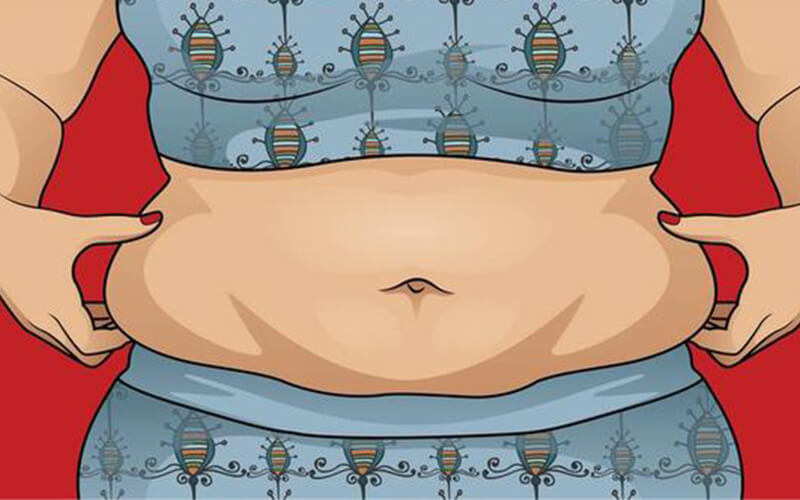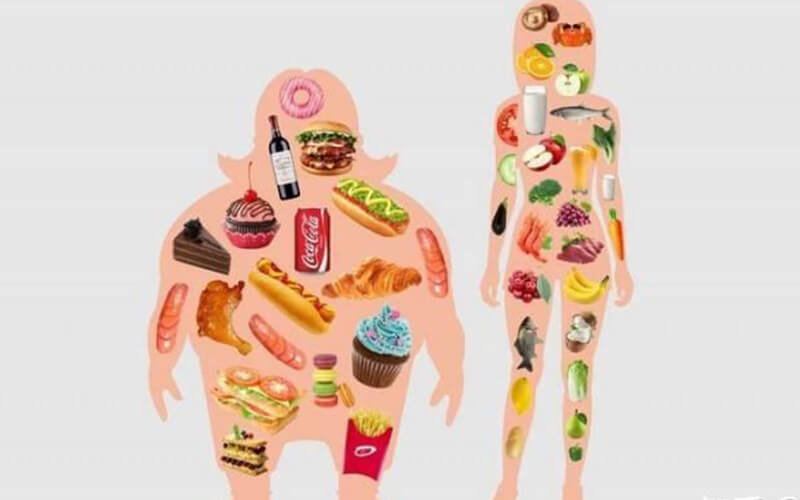In addition to serving as a storage form of energy, fat is also a key factor in maintaining normal bodily functions.
In today's era, many individuals have irregular dietary and lifestyle habits, leading to an excess of fat accumulation,
which in turn affects their overall health.
When it comes to reducing fat, people often attempt various methods such as engaging in fat-burning exercises,
following specialized diets, and adhering to workout regimens. With the growing awareness of saunas, some have
speculated that saunas might aid in fat reduction. Although this notion has yet to be substantiated, saunas do have
some impact on fat, albeit still under investigation.Next, let's explore the effects of saunas on fat.

What Causes Excess Fat?
Fat is an organic compound composed of carbon, hydrogen, and oxygen, serving as a crucial energy storage form
in the human body. Excessive fat accumulation is commonly referred to as obesity, and there are several primary
factors contributing to this condition:
Regular consumption of high-calorie and high-fat foods often leads to fat production. In today's era, many individuals indulge in high-calorie foods such as fried foods, bubble tea, desserts, etc., which provide energy exceeding the body's requirements. The surplus energy is stored in the form of fat, resulting in excessive fat accumulation.
2. Lack Of Exercise:
In modern society, an increasing number of people are reluctant to engage in physical activity. Combined with prolonged periods of sedentary activities such as desk jobs, studying, and entertainment, this sedentary lifestyle promotes fat deposition. Insufficient exercise, particularly aerobic and strength training, results in energy expenditure significantly lower than energy intake, thereby greatly increasing fat accumulation.
3. Metabolism:
A low basal metabolic rate may hinder the breakdown of ingested food, leading to fat storage. Metabolic disturbances may also lower the metabolic rate, further contributing to weight gain.
4. Genetic Factors:
Obesity may be influenced by genetic factors, with certain genes predisposing individuals to excessive fat accumulation, thus resulting in obesity.
5. Psychological Factors:
Emotions can also influence fat accumulation. During periods of negative emotions such as stress, anxiety, or depression, individuals may resort to overeating or consuming unhealthy foods. Some people may engage in binge eating to alleviate emotions and release stress, which, however, can lead to fat deposition. These are potential factors contributing to excessive fat accumulation. In this era, many young people favor high-calorie and high-sugar foods, coupled with unhealthy lifestyles such as frequent late nights and irregular sleep patterns, which further promote fat deposition. Promoting physical health development can be achieved through increased physical activity and maintaining a balanced diet and regular sleep patterns.

What Effects Does Excess Fat Have On The Body?
1. Cardiovascular Health:
Excessive fat accumulation may impact cardiovascular health. The presence of excess fat can elevate lipid levels in the blood, leading to conditions such as hypertension, stroke, heart disease, thereby increasing the risk of cardiovascular diseases.
2. Diabetes:
Excessive fat accumulation is associated with an increased risk of diabetes, as it can lead to elevated blood sugar levels.
3. Respiratory System:
Excessive fat accumulation, particularly around the neck and airways, may obstruct breathing pathways, affecting respiratory rate during sleepand potentially causing periods of interrupted breathing.
Additionally,excess fat in the chest area can impede lungexpansion, leading to respiratory difficulties.
4. Arthritis:
Excessive fat accumulation may exacerbate joint burden, contributing to the development and worsening of arthritis, and increasing the risk of fractures in severe cases.
5. Digestive System:
Excessive fat accumulation can lead to liver accumulation, potentially resulting in liver cirrhosis and gallstone formation.
6. Mental Health:
Excessive fat accumulation may contribute to feelings of anxiety and depression, thereby affecting mood and overall mental well-being.Excessive fat accumulation can have adverse effects on various bodily systems, increasing the body's burden and impacting overall health and development.

What Are Some Effective Ways To Reduce Fat?
1. Dietary Aspect:
Maintain a balanced diet, consume more low-calorie foods such as vegetables, fruits, grains, and lean meats. Control calorie intake by avoiding high-calorie foods. Limit sugar intake to prevent excessive sugar consumption from generating excess calories.
2. Exercise:
Engage in aerobic exercises to burn fat, such as running, cycling, swimming, etc. Incorporate more physical activity into daily life, avoiding prolonged periods of sitting or lying down to increase energy expenditure.
3. Regular Sleep Patterns:
Maintain a good sleep schedule, ensuring 7 to 9 hours of quality sleep each night, which helps reduce fat accumulation.
4. Seek Assistance:
Seek help from doctors or professional weight loss experts. If excessive weight leads to health issues, consult a doctor for an effective and safe treatment plan tailored to your physique and health condition. If there are no major health concerns, seek weight loss plans from professional weight loss experts and follow the plan accordingly. Reducing fat requires efforts from various aspects to help decrease fat content. Establishing a reasonable plan can achieve the desired fat loss effect.

How Does A Sauna Play A Role In Fat Loss?
Some may be surprised to learn that saunas can aid in fat loss? In fact, saunas do not directly promote fat reduction, but
they can assist in fat loss through other means. The high temperatures in saunas can stimulate sweat production, increase
energy expenditure, thereby facilitating fat reduction. If you are considering using saunas for weight loss, then keep reading
as we analyze how saunas can help in fat loss.
Promoting Blood Circulation:
The high temperature environment of the sauna helps dilate blood vessels, increasing blood flow, which aids in the
transportation of oxygen and nutrients. This improves blood circulation, facilitating the elimination of waste and toxins,
potentially resulting in a slight expenditure of energy.
Muscle Recovery:
The sauna's high temperature environment helps relax the body and muscles, alleviating post-exercise muscle soreness and stiffness, accelerating the body's recovery. Alleviating post-exercise discomfort is beneficial for sustaining exercise efforts, thus promoting fat loss.
Aerobic Exercise:
The sauna's high temperature environment induces significant sweating, expending a certain amount of energy, akin to mild
aerobic exercise, which may contribute to fat loss to some extent.
Temporary Weight Reduction:
The high temperature of the sauna induces profuse sweating, leading to significant loss of water weight, resulting in temporary weight
reduction. However, weight typically returns to normal after rehydration, indicating that saunas do not directly promote fat reduction.
In general, saunas can provide some assistance in fat loss, but the specific effects may vary from person to person.
Saunas are not suitable for everyone, and some individuals may not experience any effects after using saunas. For those
truly in need of weight loss, there are more effective and safer methods available.
Although the effects of saunas on fat loss may not be significant, they can help alleviate the emotional stress and anxiety
associated with obesity. Additionally, saunas can relieve post-exercise fatigue, muscle soreness, and other discomforts
caused by obesity or physical activity. Saunas offer numerous benefits, not only promoting various health benefits but
also enhancing overall well-being, helping individuals relax and uplift their mood.
There are various types of saunas available, such as traditional saunas, steam saunas, and infrared saunas, each
offering different sauna experiences and effects. Sauna rooms also come in a variety of types, including traditional
square sauna rooms, outdoor barrel saunas for five people, and single-person infrared sauna rooms. Different sauna room types
provide different sauna environments, allowing individuals to choose according to their needs.








